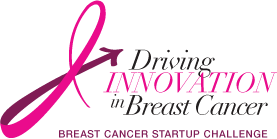We are a team of enthusiastic medical students and researchers ready to leverage our medical, business, and biomedical research expertise in order to develop cancer diagnostics that will enable for more personalized treatment decisions.
Taxotest, our flagship product, is a diagnostic biomarker that can be applied to a patient’s tumor sample to predict whether she would benefit from taxane-based chemotherapy. By making this prediction, oncologists can spare patients from non-working chemotherapy regimens, save valuable treatment time and prevent uncomfortable side effects. We project that this product will lead to $365 million in annual savings from reductions in inefficient chemotherapy usage in the US.
We hail from the Tulane University School of Medicine in New Orleans, Louisiana, as part of a burgeoning biotechnology community led by the New Orleans Bioinnovation Center. Since entering the start-up phase of the competition, we have reached out to the National Cancer Institute, reviewed our research plans with the technology’s inventor, identified interested investors, and pursued additional technologies that fit our mission of bringing greater personalization to cancer treatments.
We are prepared to tackle the numerous challenges ahead. In the end, if we can bring better results and better quality of life to cancer patients by minimizing the uncertainties in their care, then we will consider our efforts to be vindicated.
Team Biographies
Brian Yu holds a BS in Economics with a minor in Philosophy from Tulane University. He is a medical student at the Tulane School of Medicine. Prior to medical school, he attended Boston University for his masters degree in medical sciences, where he developed an interest in biotechnology through coursework in translational research and technology commercialization. Brian has clinical research experience in psychiatry. His experiences with study design and biostatistics are valuable for the challenge of clinically validating our technology.
Richard Tang holds a BS in Biochemistry with a minor in Economics from Tulane University. He is a medical student at the Tulane School of Medicine. Before he matriculated into medical school, Richard worked for a year as the Fund Development Intern for a community development nonprofit, where he took charge of grant writing and board development initiatives, among other tasks. Richard has had significant laboratory research experience; he has previously worked on developing a nanoparticle-mediated chemotherapeutic, and is currently conducting research on IGF-1 signalling in atherosclerosis.
Muralidharan (“Murali”) Anbalagan holds both an MS and PhD in Environmental Toxicology from the University of Madras, India. He is a senior postdoctoral researcher at the Tulane Medical School Department of Structural and Cellular Biology. His research focuses on developing innovative oncology therapeutics for endocrine related cancers, and breast cancer in particular. Murali has been extensively published in peer-reviewed journals, and has also served as an invited reviewer for several others.
Taxotest, our flagship product, is a diagnostic biomarker that can be applied to a patient’s tumor sample to predict whether she would benefit from taxane-based chemotherapy. By making this prediction, oncologists can spare patients from non-working chemotherapy regimens, save valuable treatment time and prevent uncomfortable side effects. We project that this product will lead to $365 million in annual savings from reductions in inefficient chemotherapy usage in the US.
We hail from the Tulane University School of Medicine in New Orleans, Louisiana, as part of a burgeoning biotechnology community led by the New Orleans Bioinnovation Center. Since entering the start-up phase of the competition, we have reached out to the National Cancer Institute, reviewed our research plans with the technology’s inventor, identified interested investors, and pursued additional technologies that fit our mission of bringing greater personalization to cancer treatments.
We are prepared to tackle the numerous challenges ahead. In the end, if we can bring better results and better quality of life to cancer patients by minimizing the uncertainties in their care, then we will consider our efforts to be vindicated.
Team Biographies
Brian Yu holds a BS in Economics with a minor in Philosophy from Tulane University. He is a medical student at the Tulane School of Medicine. Prior to medical school, he attended Boston University for his masters degree in medical sciences, where he developed an interest in biotechnology through coursework in translational research and technology commercialization. Brian has clinical research experience in psychiatry. His experiences with study design and biostatistics are valuable for the challenge of clinically validating our technology.
Richard Tang holds a BS in Biochemistry with a minor in Economics from Tulane University. He is a medical student at the Tulane School of Medicine. Before he matriculated into medical school, Richard worked for a year as the Fund Development Intern for a community development nonprofit, where he took charge of grant writing and board development initiatives, among other tasks. Richard has had significant laboratory research experience; he has previously worked on developing a nanoparticle-mediated chemotherapeutic, and is currently conducting research on IGF-1 signalling in atherosclerosis.
Muralidharan (“Murali”) Anbalagan holds both an MS and PhD in Environmental Toxicology from the University of Madras, India. He is a senior postdoctoral researcher at the Tulane Medical School Department of Structural and Cellular Biology. His research focuses on developing innovative oncology therapeutics for endocrine related cancers, and breast cancer in particular. Murali has been extensively published in peer-reviewed journals, and has also served as an invited reviewer for several others.

 RSS Feed
RSS Feed